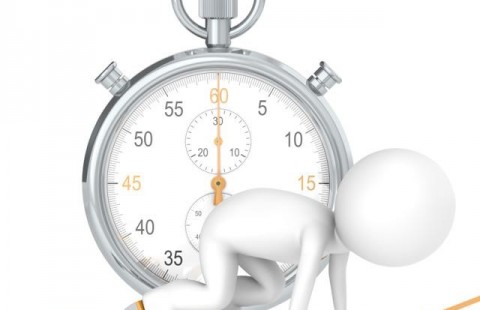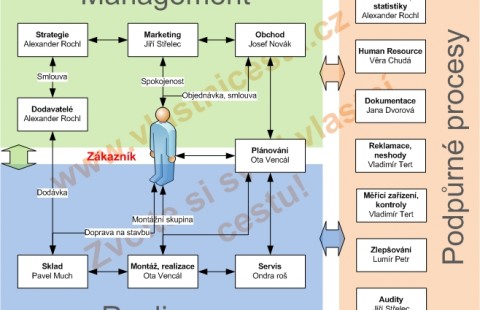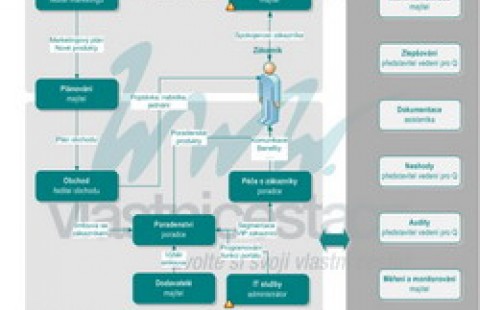Being self-assured equals to living free of fear. It means we feel so sure about ourselves that nothing can make us feel scared, neither any man, nor any situation, neither any events to come.
Please, write to us your own story about how you have acquired a better self-assurance.
As we walk across the street, all of a sudden, a car pulls right against us, a we, naturally, get frightened. In ten minutes we have regained our peace of mind. This kind of fear does not rid us of our self-assurance or self-confidence. There is another one: an inconspicuous, creeping feeling that we will not get the recognition of the others, that we will not make it very well, not meeting the requirements we are expected to meet, that we fail expectations of others.
Can you recall the moment in your life when you badly wanted to do something, but eventually you did not do it? You wanted to go somewhere, yet you did not. You wished for a change, but you failed to effect that change. You wanted to address somebody, but did not gather the courage. Do you know why you failed to do that? Because you were in fear.
Fear is a powerful disincentive
Fear is the single most powerful disincentive of our lives. If we make a decision out of fear, we frequently feel as a victim. We use lack of opportunity and support as an excuse, following the choices and wishes of others. Subsequently, we live lives that give us little joy and satisfaction. We operate in the zone of comfort that keeps us sort of assured that we will not get hurt and fail. Such a zone offers us equally protection and limitations.
Each chance for a positive change also brings along risks accompanied by our fear. Perhaps it is better to fall and get hurt than never try it, or is it not? Not seeing our dreams materialize and not making sense of our lives? Is it not better to make a mistake rather than spending a lifetime of feeling sorry for ourselves for doing nothing to make our dreams come true?
Sadly, the majority of people do not see their mistakes positively, as tools to learn a lesson or two, but as failures, so they lapse into inaction for fear of failing anything they start doing. Or contrary to that, they keep finding excuses for their mistakes saying that nobody is perfect, but they will never learn a lesson from their mistakes repeating them all over again.
According to psychologists, there are two reasons for a diminished feeling of self-assurance:
1. the acquired feeling of helplessness, based on the belief that man alone is not in position to control their situation. It results in the feeling of hopelessness, inactivity and resignation to their fate. One then fails to learn new ways, either repeating the old unsuccessful behaviour or doing nothing.
2. people are slaves to their habits. They have got stuck in their comfort zone, for new things are not so "safe" as those they already know.
We keep looking for security and support, yet only few will ever find them. Why? Most people look for security in dependence on others and not independently of others. They hold the view that somebody else will show them the solution. In doing so, they give up their personal freedom giving in to the general standards of behaviour. They try to draw the security from the outside – from the environment, the ownership or other people´s views. However, there is no such thing as an outside security. Security, like happiness, is a state of our mind. It is not easy to find the way to a robust self-confidence. The media show us one particulart form of perfection that they present as the main stream: ownership of material things, appearance or social status. Indeed, even excentricity, arrogance and contempt have become a new form of self-assurance. Unawares, we accept these ideas.

Legal aspects of insolvency and reorganization

The Real | Interim Manager for Your Changes

Manager work model

Time management - making use of time effectively

Jak správně tvořit mapu procesů

Modelling and setting the processes and procedures - ISO 9001

Training - preparation of the SWOT analysis and strategy

Company Management System of Quality Step by Step - ISO 9001

Process map acc ISO 9001 - business offer
Ways to boost our self-confidence
1. Let us begin building on our strengths
We can boost our self-confidence already - on our strengths. Everyone of us has got a unique gift. We all have got some strengths – thoughts, feelings or ways of conduct that are natural and authentic. If we draw on them, we feel full of energy and power. Such a moment brings us an extraordinarily elevating feeling as we have struck an optimal balance between our abilities and the severity of the task.
Making use of our own strengths can get us to the point when we feel best, as we are engaged in an activity that brings us the greatest joy. Moments like this offer us the best opportunity to grow. It brings an intensive feeling of satisfaction, too. Once we have identified our strengths, start building on them. Let us make these strengths a part of the practice and use them in our lives every day.
2. A failure is a means of learning
From now on, if we fail or make a mistake, let us take it as an opportunity to learn. It does not mean we are bad. It only means we have acquired a new bit of experience. We have learned another thing that does not work. We have remained just as good and worthy as ever before.
3. Self-assurance needs to be kept up
The safest thing to do is to surround ourselves with the right people and stop meeting those who put down our self-confidence. Positive action and influencing others is, sadly, rather slow and significantly weaker in effect than when another person puts us out within only a few moments. Therefore, leave those who put us down where they are. We frequetly settle for living in the environment that suppresses our identity and aspirations. We sometimes let people belittle our achievements, insult us and generally have a bad influence on us.
Also, consider well whether they are people who do put us down, trying to harm us, or they are just intent on taking advantage of us. The process of learning new things is mostly accompanied by troublesome situations, lack of understanding from the side of others etc. It happens just because we do not possess some of the knowledge other people might have already acquired, although we have yet to learn it.
4. Practise self-appraisal
It is very important to know how to appraise ourselves for what we have achieved, for our successes as well as the little details of every day. For our dreams do consist of all those petty little things of our lives. The lack of self-confidence has been determined by our upbringing, the environment we grew up in. If one gets little love, support, trust and motivation since early in live, it will surely reflect in their reduced self-confidence. Everybody deserves love, respect and freedom.
5. Let us set ourselves the limits
What is that? It is one of the most crucial things we can do for ourselves. If we want to be healthy, successful, good-tempered and self-confident in that ever-more-chaotic world rife with advanced technologies and consumerism we live in.
The limits are a part of the game. The thing is to respect ourselves, getting to know where our limits are. Knowing to express our needs, let the others know what we can take and what we cannot. If we fail to establish the limits or do not respect them, we have no way of showing them to the others. Essentially, what we do is showing that the needs of others are more important than our own. At times, we may be unsure whether the others will accept our limits, or we may not be able to assert them. If that is the case, then we have to face one hard question – how much we want what we want?
6. Create our own style and way
Do not be bent too much on comparing ourselves with others, let us form our own style, own way and views. We are all unique and, ultimately, different. No carbon copies of ourselves are anywhere to be found. Making comparisons makes no sense, for everybody has been brought up in completely different circumstances. There is no accounting for styles. Everybody is supposed to find his or her own style that will bring them to happiness, inner fulfilment and higher self-confidence.
7. Feeling free, living happily
Getting there demands forgiveness. It is forgiving ourselves and also others for our past lapses or for what happened. The forgiveness is borne of the realization that the past can only be cured in the present. The forgiveness means taking the decision to gather energy and redirect it into the present time to our current objectives. Forgiving means paying full attention to the present moment. The moment when we refuse to give in to the idea of anybody or anything to usurp our strength. We forgive not only because it is right, but also because it is one way of making space in our lives for new things, news things replacing the old ones.
8. Let us be patient
Our today´s situation has come into being gradually, day by day. It has been forming for months, even years. So rushing to acquire a new feeling, having spent years adopting a different one, is bound to fail indeed. With ease we might fall for the trap of mistakenly believing we have already been transformed. This is the reason why rushing things up does not tend to pay off.
Self-assurance only begins where man develops and cultivates his or her talents.
What is it going to be like to feel self-assured….?
In conclusion, how can we tell our self-confidence has improved. We are going to wear elegant clothes in our own style, as we are going to feel attractive. We are going to keep our heads up, as we are going to be aware of our worth and that we are entitled to dignity. We are going to take seats in the front rows, not because of the need for popularity, but because of the need for quality information. We are going to participate in discussions, not to demonstrate our presence and attract attention, but because of our inner need to share with others the many things we have to share ...


